Top 10 Reasons To Wear Motorcycle Gear

Regular Motorcycle.com readers know that we are big proponents of wearing proper motorcycle gear while riding. We think wearing anything else would be foolish. (Yes, we’re looking at you t-shirts, shorts, and sneaker-wearing riders!) Rationally, we all know that, in a crash, the best thing to be wearing is durable gear – if we want to minimize the potential for injury.
Unfortunately, a lot of riders have an unrealistic view of their chances of going down. Hey, I understand. During my first few months on a motorcycle, I wore a jean jacket – which is just slightly better than nothing. Since then, I’ve always worn the best gear I could afford. The good news is that rider protection technology has come a long way in recent years. You don’t have to buy expensive leather to be sure you’re protected from the slings and arrows of abrasive pavement. What follows is a list of reasons why you should consider buying – and wearing – dedicated motorcycle protective gear every time you ride.
10. Look Like a Motorcyclist
Come on, admit it: You’ve noticed your reflection in the plate glass of a storefront and paused for a moment to contemplate how cool you look on a bike. We all have. Part of the attraction of riding a motorcycle is to set yourself apart from the crowd of box-jockeys. Wearing motorcycle gear places you as a member of our tribe even when you aren’t straddling your bike. Other motorcyclists know what to look for: bug impacts on leather, the well-worn shifter patch on the left boot, armor hidden in your jean’s knees, etc. Wear your gear proudly.
9. Ride Comfortably in the Rain
Believe it or not, riding in the rain is really fun! That is, if you have proper rain gear. If you’re warm and dry, the wetness going on around you becomes part of the scenery and challenge of riding with reduced traction. (Though, truth-be-told, modern rubber means the traction is compromised considerably less than in previous eras.) A decent rain suit can be bought for well less than $100, as can a pair of waterproof gloves. Boots, if you’re on a budget, can dry out later. Just make sure your rain gear is brightly colored so that you stand out in the limited visibility of the weather.
8. Protect Your Hearing
You only have one set of ears, and in your old age, you’ll be glad if you protected them. Otherwise, since hearing damage is cumulative, you’ll be glad hearing aids have gotten so much better. You really should be wearing ear plugs every time you ride at highway speeds – even if wearing a full-face helmet. Since wearing a quality full-face helmet goes a longer way towards protecting your hearing than bare ears flapping in the gale-force wind, the helmet is better than nothing, but there’s still room for improvement. So, do your ears a favor and wear some dang ear plugs. Follow the link below to learn more about the effect riding can have on your hearing.
7. Stay Warm in the Cold
Being cold on the road is no fun. Additionally, as you go hypothermic, your judgement – and hence your ability to be aware of your judgment – becomes impaired. Many textile jackets and suits are available in multi-season configurations, but if those are too costly for you, a windproof shell can do wonders for your warm weather riding gear. If you’ve got the money, quality electric gear is worth every penny when the temperature dips into the 40s on your hour-long commute home. As long as you keep your core warm, your extremities will be much happier. Investing in some insulated gloves is also a good idea if cold-weather riding becomes part of your regimen.
6. Better Grip on Pavement
This may sound silly, but I blame the high-topped sneakers I was wearing for contributing to me dropping a bike at a gas stop once. I put down my foot, and the relatively flat sole slipped out from under me in a very embarrassing and public way. (My friends laughed openly while the other station customers tried not to laugh at me.) Since then, I’ve never had the same result from a gas-stop slip when wearing motorcycle boots with grippy soles. Additionally, riding boots provide ankle support if you’re forced to catch your bike for some reason. Then there’s the protection they provide from flying debris – which can’t be downplayed, as I’ve been bruised through my boot armor by a rock kicked up by another rider.
5. Protection from the Sun
While this benefit may sound ridiculous, you’ll feel worse than silly coming home from an all-day ride in your shirtsleeves with a massive sunburn. (Don’t forget to use sunscreen on the portions of your body not covered by your gear, like your neck.) Also, warm weather riding gear, by controlling the airflow over your body, will help you feel the maximum cooling benefit from your sweat while you’re moving. It’ll also slow down the rate at which you become dehydrated, but you should still tank up with fluids (that aren’t soda) at each gas stop. (Photo Credit: DepositPhotos.com)
4. Better Use of the Controls
There’s a reason why people who carry heavy things for a living wear work gloves. Simply put, they give you a better grip. Additionally, gloves allow for you to more consistently control the levers on your motorcycle, no matter how much your hands are sweating.
3. Be Seen
Yeah, we know that black leather is the unofficial material of motorcycling. Well, even black leather motorcycle gear can come with reflective material sewn it at the seams. One of the primary goals of a motorcyclist (aside from having fun) is to avoid getting squashed by an errant automobile. Being conspicuous during both the day and night is a really important factor in achieving that goal. Brightly colored gear is fairly common, but if you must wear black, consider a colorful helmet. Oh, and always avoid camouflage. It’s designed to make you more difficult to see.
2. See the Road
Have you ever taken a rock – or even a June bug – to the neck while riding? You know how much that hurts. Now imagine that happening to your unprotected eye. Even without flying solid objects, your eyes are at risk every time you ride. At highway speeds, the wind is enough to make it difficult to see, and glasses that don’t seal around your eyes offer minimal help. That’s probably why several states require motorcyclists to wear eye protection. Naturally, we think the eye protection offered by a full-face helmet is the best option.
1. Protect Yourself in a Crash
We’ve finally arrived at the only reason many riders think of when considering gear. Yes, crash protection is the most important reason for wearing gear. Asphalt doesn’t care that you want to keep your face looking the way it was genetically designed. So, at the very least, if none of the previous reasons for wearing proper motorcycle gear resonates with you, dress for the crash. We want you to ride long and far.

Like most of the best happenings in his life, Evans stumbled into his motojournalism career. While on his way to a planned life in academia, he applied for a job at a motorcycle magazine, thinking he’d get the opportunity to write some freelance articles. Instead, he was offered a full-time job in which he discovered he could actually get paid to ride other people’s motorcycles – and he’s never looked back. Over the 25 years he’s been in the motorcycle industry, Evans has written two books, 101 Sportbike Performance Projects and How to Modify Your Metric Cruiser, and has ridden just about every production motorcycle manufactured. Evans has a deep love of motorcycles and believes they are a force for good in the world.
More by Evans Brasfield



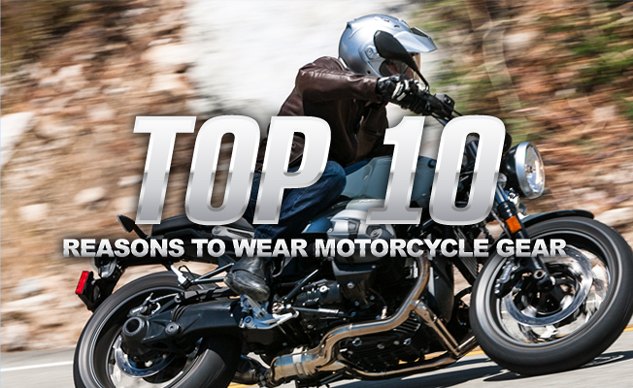











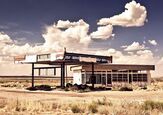
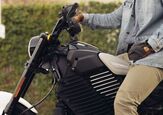
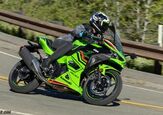

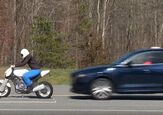
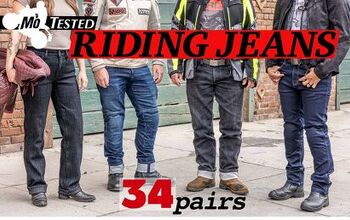
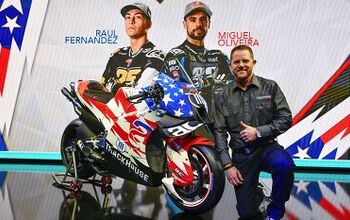
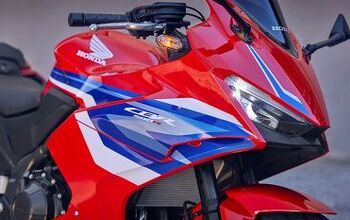
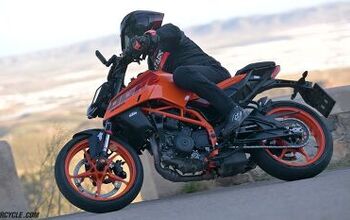
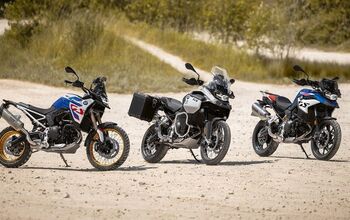
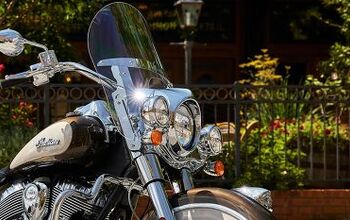
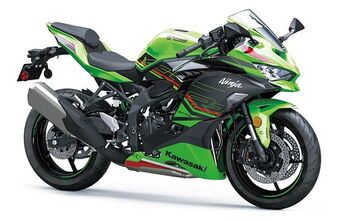
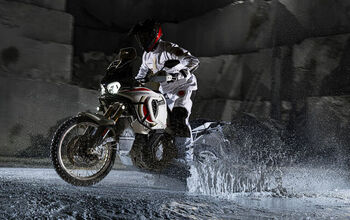
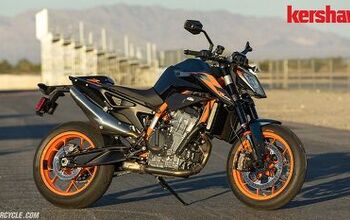


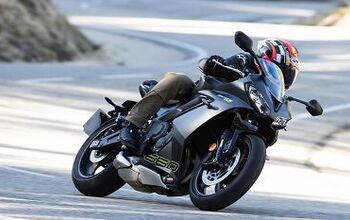

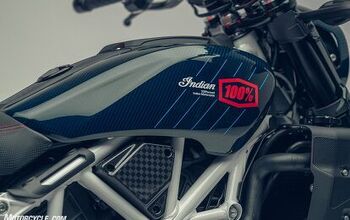

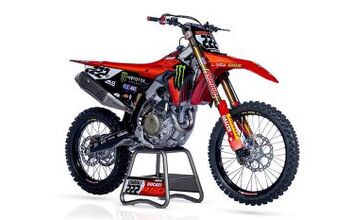
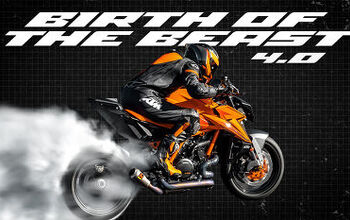

Comments
Join the conversation
Seriously, the slide is so annoying.
Let me add one more reason why you should wear a helmet, a lot of insurance companies, and the US Military medical coverage will not cover your expense if you do not have a helmet on, be it required by law or not. Check with your insurance agent.